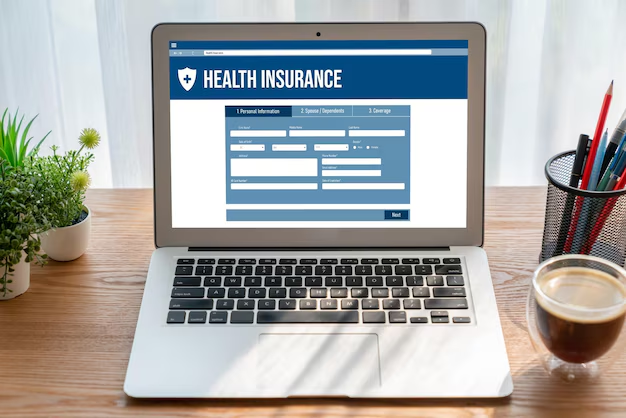Your Guide to Do Medicare And Medicaid Work Together
What You Get:
Free Guide
Free, helpful information about Medicare FAQ and related Do Medicare And Medicaid Work Together topics.
Helpful Information
Get clear and easy-to-understand details about Do Medicare And Medicaid Work Together topics and resources.
Personalized Offers
Answer a few optional questions to receive offers or information related to Medicare FAQ. The survey is optional and not required to access your free guide.
How Do Medicare And Medicaid Work Together To Provide Comprehensive Health Coverage?
Navigating health insurance can often feel like being lost in a maze without a map. Among the myriad policies and options available, Medicare and Medicaid stand out as crucial safety nets designed to support the health needs of millions of Americans. While these programs often cater to different groups, they can indeed work in tandem to provide a comprehensive coverage plan for those eligible for both. But how exactly does this partnership work?
Understanding Medicare and Medicaid
Medicare is a federal insurance program primarily for people aged 65 and older, but it also covers younger individuals with certain disabilities or chronic conditions. It comprises several parts, including Part A (hospital insurance), Part B (medical insurance), and optional Part D (prescription drug coverage).
Medicaid, on the other hand, is a state-managed program that provides health coverage for low-income individuals, including families, pregnant women, seniors, and people with disabilities. Each state has its own guidelines regarding eligibility and services.
Can You Have Both Medicare and Medicaid?
Yes, there is a group of beneficiaries known as "dual-eligibles" who qualify for both Medicare and Medicaid coverages. Being dual-eligible allows them to access a broader range of healthcare services while minimizing out-of-pocket costs.
How They Work Together:
- Enhanced Coverage: Medicare typically covers services related to hospital visits and outpatient care, while Medicaid may cover additional costs like copayments, deductibles, and sometimes, services not covered by Medicare.
- Prescription Drugs: Dual-eligibles often benefit from Medicare Part D for prescription drugs, with Medicaid potentially covering certain excluded medications.
- Long-term Care Support: Medicaid can help cover costs for long-term care services, which Medicare does not typically cover, including nursing home care or home health services.
Together, these programs aim to reduce the financial burden of medical expenses and provide a more comprehensive approach to healthcare for vulnerable beneficiaries.
Making the Most of Government Aid Programs
While Medicare and Medicaid provide significant health coverage, individuals may need additional financial support. Exploring other government aid programs and financial assistance can be beneficial:
Financial Assistance Programs
Supplemental Security Income (SSI) - Provides monetary aid to low-income individuals who are elderly, blind, or disabled.
Low-Income Home Energy Assistance Program (LIHEAP) - Helps with energy costs, ensuring that low-income households can afford to heat or cool their homes.
Supplemental Nutrition Assistance Program (SNAP) - Formerly known as "food stamps," SNAP assists in purchasing food for low-income individuals and families.
Temporary Assistance for Needy Families (TANF) - Provides temporary financial assistance to pregnant women and families with one or more children.
Credit and Debt Relief Solutions
Non-Profit Credit Counseling - Offers guidance and planning for managing debts and improving financial health.
Debt Management Plans (DMPs) - Helps to consolidate multiple debts into one monthly payment, potentially reducing interest rates and waiving fees.
Federal Student Loan Forgiveness - Benefits those who qualify based on employment in public service jobs or income-driven repayment plans.
Exploring these options can empower individuals to improve their financial stability and additional support beyond healthcare.
Key Programs and Opportunities
❤️ Medicare Savings Programs - Helps pay for Medicare premiums and other costs. 🌟 State Health Insurance Assistance Program (SHIP) - Offers free, local counseling and assistance. 💡 Educational Grants - Federal Pell Grants for low-income students pursuing post-secondary education. 🛡️ Public Assistance Programs - Include a range of aid such as housing and utility support. 📚 Federal Student Aid (FAFSA) - Essential step for accessing student loans and grants. 🩺 Dual-Eligible Special Needs Plans (D-SNPs) - Tailors Medicare Advantage plans for dual-eligible beneficiaries.
By understanding how Medicare and Medicaid complement each other, individuals can leverage these programs more effectively to manage health expenses while seeking additional resources to bolster their financial resilience.
What You Get:
Free Medicare FAQ Guide
Free, helpful information about Do Medicare And Medicaid Work Together and related resources.

Helpful Information
Get clear, easy-to-understand details about Do Medicare And Medicaid Work Together topics.

Optional Personalized Offers
Answer a few optional questions to see offers or information related to Medicare FAQ. Participation is not required to get your free guide.


Discover More
- a Medical Provider That Accepts Medicare Assignment Must
- a Medical Provider That Accepts Medicare Assignment Must Quizlet
- a Medicare Patient Received Treatment That Isn't Covered By Medicare
- a Medicare Patient Receives Treatment That Isn't Covered By Medicare
- a Medicare Supplement Basic Benefit Is Quizlet
- a Medicare Supplement Companies
- a Medicare Supplement Policy Is Quizlet
- a Medicare Supplement Policy Must Not Contain Benefits Which
- a Patient Received Treatment In August Medicare
- Am I Eligible For Medicare
